Question
 Meggie Girl
Meggie Girl
First off... thank you so much for volunteering your expertise! I have a 13 year old lab mix who I have raised from puppyhood. She was my first dog and has always been healthy. I am afraid she is getting old! She has slowed down a lot in the last two years. No longer wanting to go on a long walk, sometimes even laying down when we get the leash. She is on rimadyl for stiffness and joint pain, and that helps. She seems to sleep deeply, not waking up when there are noises, etc. I am thinking that all of these things are probably normal for a dog of her size and age. She gets regular check ups and has recently had a healthy senior dog blood panel. What I would like for you to explain, if you would, is... what is ahead in the way of aging symptoms in an otherwise healthy dog? How does a dog die of old age? I mean, if she is healthy and all, what will it be like? I know you don't have a crystal ball, but I am really worried about how to cope with her dying, and if I could just know some of the things to expect, I could prepare myself for that time. Thank you. Jodie
AnswerDogs can go in many different ways. As they age, their quality of life changes. One of my oldest dogs died one month before his 17th birthday. He slept about 23 hours a day, ate well, and pottied outside, as long as one got him outside in a timely fashion; he did need to be carried up and down the stairs his last few months as he became more unsteady with the stairs and did have trouble getting up them. That was his quality of life... and he was content.
Some dogs lose their hearing, some their sight, some their sense of smell, some have to deal with aches and pains, some get a bit incontinent, and some get senile. The senile dogs can be the hardest to deal with sometimes. They lose their "back up" ability, walk into corners or tight spots, and get stuck there. They aren't usually that responsive, so sometimes have to be hunted down to see where in the heck they ended up. Having an old dog is like returning to puppyhood, without all the cuteness and fun. Old dogs become a LOT of work sometimes.
As we all age, it can become an effort to keep going. We fight to get out of bed; we fight to keep moving; we fight to stay alive. When your dog is done "fighting the grand fight", you will see it in her eyes. The will to live will be gone, and something indefinable will be missing in her eyes. The dog will stop eating, and some will try to go off to be by themselves. Some will pass quietly in their sleep, and some will force us to do the unspeakable. If the dog still wants to fight, I will fight along with it as long as I am not prolonging some debilitating disease or keeping the dog in uncontrollable pain.
The best thing one can do for his dog is to keep it slightly on the thin side, as studies have been done that prove that those dogs live 1-1/2 to 2 years longer than their heavier littermates. (This study was done with seven litters of labrador retrievers.) And if a dog is dealing with aches and pains, it is even more crucial that its weight be closely monitored. You might want to put your dog on a good glucosamine/chondroitin supplement such as Cosequin to help her with her joints, if she isn't already.
One thing that I do feel very strongly about is that I think that too many old dogs are put down for the sake of the owner's convenience. Old dogs are a LOT of work. Some require help getting up and down stairs (this is easier with small dogs; not so easy with larger ones); some need to go outside more frequently; some require certain meds.
Dogs give us their ALL their entire lives... they play with us, they entertain us, they cry and laugh with us, they empathsize with us; some save our lives in some way or other. When they get old and their lives begin to decline, I feel that it is OUR turn to give back to them and to make their final months, days, as comfortable as we can. The dog will tell you when the time has come to leave and return Home.


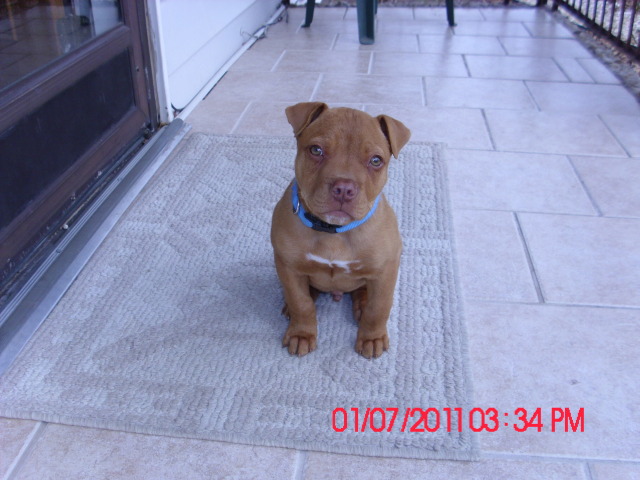 puppy medical concerns
Question
Rusty
my 11 week old red nose pit bull at time
puppy medical concerns
Question
Rusty
my 11 week old red nose pit bull at time
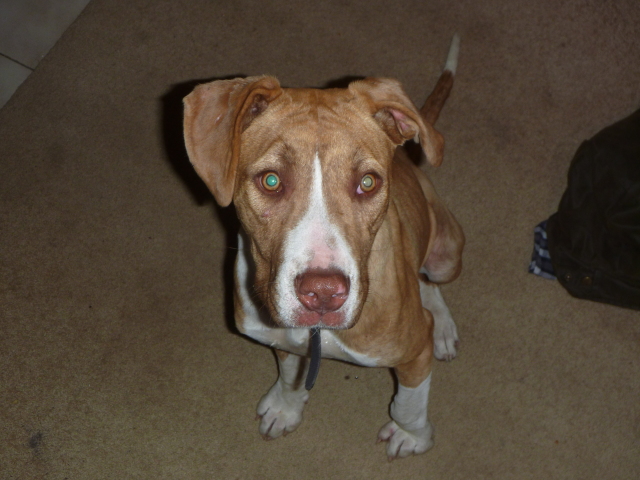 Malnurished Bull Mastif x Great Dane ;
Question
Sticks
Hi,
Ive recently, (the last 24 hours) b
Malnurished Bull Mastif x Great Dane ;
Question
Sticks
Hi,
Ive recently, (the last 24 hours) b
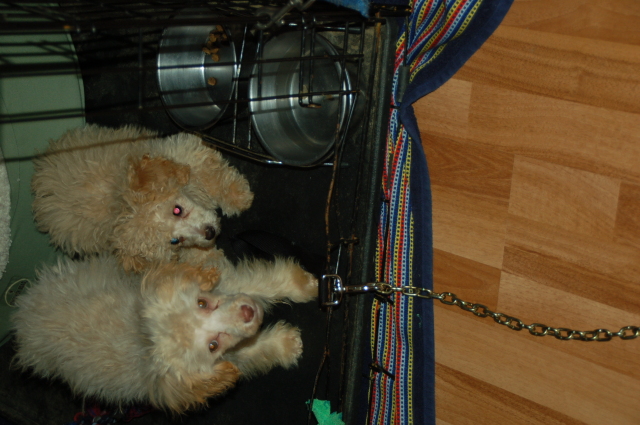 puppy behavior
Question
Cooper and Guy
Hi, thanks so much for reading
puppy behavior
Question
Cooper and Guy
Hi, thanks so much for reading
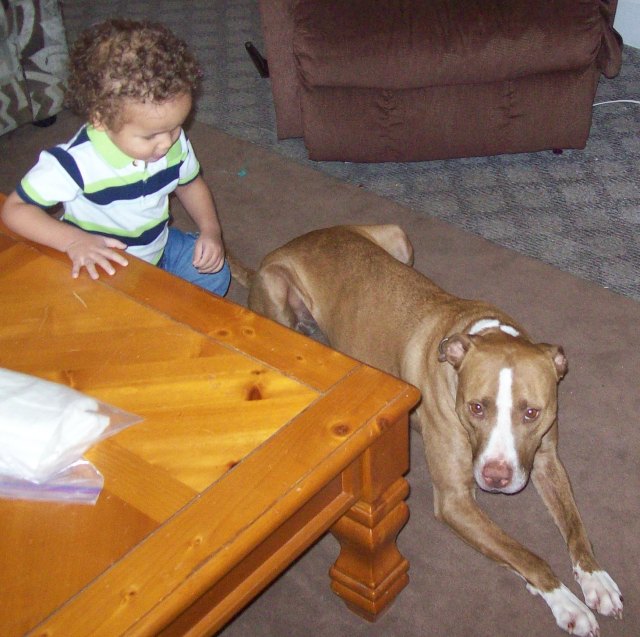 my older dog is house broken but not
QuestionQUESTION: I got a 9 yr old dog from a shelter a
my older dog is house broken but not
QuestionQUESTION: I got a 9 yr old dog from a shelter a
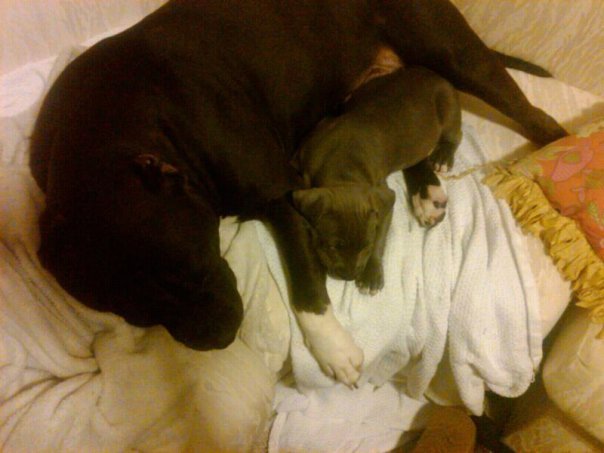 Dog aggression towards puppy
Question
The father and his pup
My older dog is an Amer
Dog aggression towards puppy
Question
The father and his pup
My older dog is an Amer